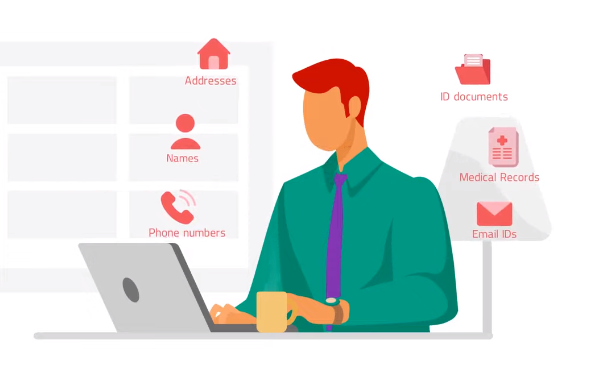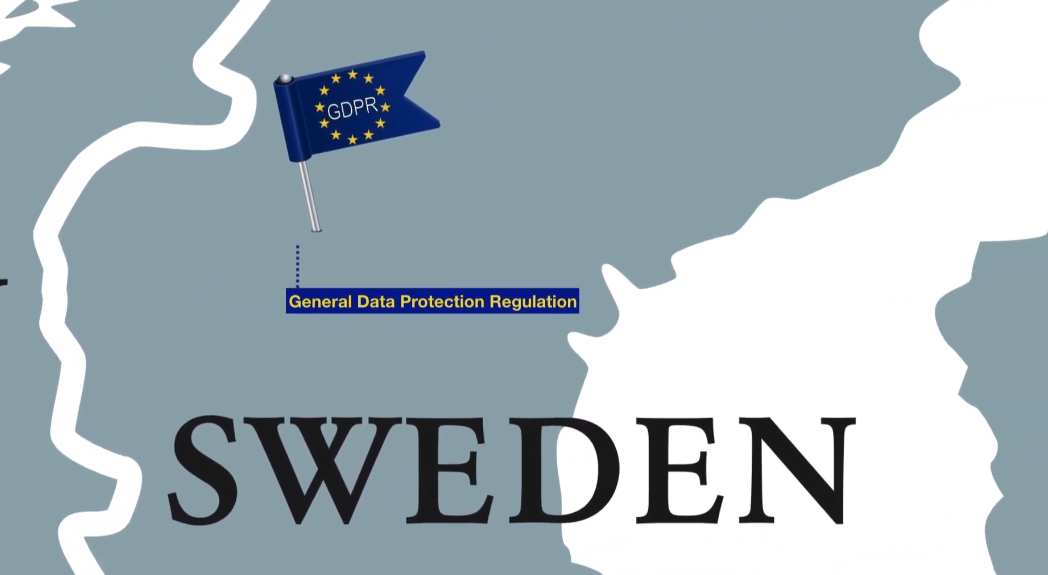Introduction
With the increasing amount of personal information being shared online, it is important for individuals and organizations to understand data privacy policies. A data privacy policy outlines how an organization collects, uses, stores, and protects personal information.
The European Union’s General Data Protection Regulation (GDPR) and California Consumer Privacy Act (CCPA) are examples of legislation aimed at protecting individual data privacy rights. These regulations have prompted many organizations to re-evaluate their data-handling practices and ensure compliance with the new laws.
It is important for individuals to understand their own data privacy rights as well. This includes knowing what personal information they are sharing online and how it is being used by websites or applications. By understanding data privacy policies, individuals can make informed decisions about what information to share and with whom.
The Basics Of Data Privacy Policy
What Is Data Privacy?

Data privacy refers to the protection of personal data and information in digital form. This can include a wide range of information, such as names, addresses, email addresses, phone numbers, financial information and more. Without appropriate data privacy policies in place, this sensitive information can be accessed or used by unauthorized individuals or organizations.
What Is A Privacy Policy?
A privacy policy is a legal document that outlines how an organization collects, uses, and safeguards personal information collected from its customers or website users. This policy is essential in protecting the privacy of the individuals whose data is being collected. The document typically includes details on what specific types of data are being collected, how it will be used, who has access to it and how long it will be retained.
Why Do You Need A Privacy Policy?

A privacy policy is essential for any business or website that collects personal data from its users. Not only is it required by law in many countries, but it also helps to establish trust between the business and the user. A clear and concise privacy policy can assure users that their personal information will be handled responsibly and ethically.
Additionally, a privacy policy can protect businesses from potential legal issues. In the event of a data breach or misuse of personal information, having a well-written privacy policy can demonstrate that the business took reasonable steps to prevent such incidents.
Furthermore, as data privacy regulations continue to evolve globally, having an up-to-date and compliant privacy policy becomes even more critical. Failing to comply with these regulations could result in severe penalties for businesses.
Understanding The Legal Framework Of Data Privacy Policy
Overview Of Global Data Privacy Laws

Data privacy laws are becoming increasingly important in today’s digital age. With the rise of data breaches and cyberattacks, governments around the world have implemented regulations to protect personal information. These laws are not only applied to companies that collect and process data, but also to individuals who handle personal information.
The European Union’s General Data Protection Regulation (GDPR) is one of the most well-known data privacy laws. It gives individuals control over their personal information and requires companies to obtain explicit consent before processing their data. Other countries such as Australia, Canada, and Japan have also implemented similar data protection regulations.
In addition to national laws, there are international agreements that govern cross-border transfers of personal data. For example, the EU-US Privacy Shield allows for safe transatlantic data flows between Europe and the United States. Companies must comply with these agreements in order to avoid legal repercussions.
GDPR And Its Implications
GDPR or General Data Protection Regulation is a data privacy law set by the European Union (EU) that took effect on May 2018. This regulation aims to protect all EU citizens’ personal data, regardless of where it is processed or stored, and replaces the previous Data Protection Directive from 1995. GDPR has significant implications for businesses operating in the EU and those outside who collect, store, or process personal data of EU citizens.
Under GDPR, individuals have more control over their personal data. They have the right to access their information held by an organization and request its deletion if they wish to do so. Businesses must ensure that individuals provide explicit consent for their personal data usage and inform them about any breaches within 72 hours.
Non-compliance with GDPR can lead to hefty fines up to €20 million or 4% of a company’s global turnover – whichever is higher. Therefore, it’s essential for companies who handle personal data of EU citizens, regardless of their location and size, to comply with this regulation effectively.
CCPA And Its Implications
The California Consumer Privacy Act (CCPA) is a data privacy law that went into effect on January 1, 2020. The CCPA gives California residents the right to know what personal information businesses collect about them, the right to request that their personal information be deleted, and the right to opt out of the sale of their personal information. Businesses must also provide certain disclosures in their privacy policies and implement reasonable security measures to protect consumers’ personal information.
The implications of CCPA are far-reaching for businesses that collect and process consumer data. Companies need to ensure they comply with all aspects of the law if they have customers in California or if they collect data from Californians. Non-compliance with CCPA can result in significant fines by regulatory authorities or class action lawsuits filed by consumers.
Other Relevant Privacy Laws
Aside from the General Data Protection Regulation (GDPR) and the California Consumer Privacy Act (CCPA), there are other relevant privacy laws that organizations need to be aware of. One example is the Health Insurance Portability and Accountability Act (HIPAA), which applies to healthcare providers, health plans, and healthcare clearinghouses. HIPAA regulates how these entities can collect, use, and disclose protected health information (PHI) of patients.
Another privacy law is the Children’s Online Privacy Protection Rule (COPPA), which protects children’s personal information online. COPPA requires websites and online services that target children under 13 years old to obtain parental consent before collecting any personal information from them. This includes not just names and addresses but also geolocation data, photos or videos of a child’s face or voice, persistent identifiers like device IDs or IP addresses, as well as behavioral tracking cookies.
There are also sector-specific laws like the Gramm-Leach-Bliley Act (GLBA) for financial institutions, the Telephone Consumer Protection Act (TCPA) for telemarketing calls and text messages sent to mobile devices, and the Fair Credit Reporting Act (FCRA) for consumer reporting agencies. Companies must comply with these laws in addition to GDPR and CCPA if they operate in those industries or engage in those activities.
Creating An Effective Data Privacy Policy
Key Components Of A Privacy Policy
The key components of a privacy policy are the purpose and nature of data collection, types of personal information collected, methods used to collect such information, how it will be used and disclosed, and the security measures in place for protection against unauthorized access or disclosure.
Another important component of a privacy policy is notification procedures in case of a data breach. The policy should also outline the user’s rights with respect to their personal information including access to the data held by the organization, and request for deletion or correction of inaccurate information. It should also detail the retention period for which personal information will be stored.
A privacy policy must also comply with legal requirements governing data protection and include clear statements about third-party providers who may have access to users’ data. A properly crafted privacy policy can build trust among customers while mitigating potential legal risks associated with noncompliance; therefore businesses should make sure that they explain these components clearly in their policies while ensuring transparency at every level.
What To Include In A Privacy Policy
The following are some key elements that should be included in a privacy policy:
- Personal information: This section should clearly state what types of personal information the company collects from its users, such as name, email address, phone number, etc.
- How information is collected: The company must disclose how it collects user data: through forms on the website or application, cookies or other web tracking technologies.
- Use of Information: Explain how the company will use the collected data – whether for marketing purposes or any other uses.
- Sharing Information: If the organization shares user data with third parties (partnerships), or for regulatory compliance reasons, it should detail which parties may access user data and why.
- Security measures: A section detailing how user data will be kept secure must be provided.
- Policy updates: Finally, organizations must state that they reserve the right to update their policies at any time.
Tips For Ensuring Compliance With Privacy Laws
Tip #1: Know the Privacy Laws. The first step in ensuring compliance with privacy laws is to understand what they are and how they apply to your business. Different states, countries, and regions have their own privacy laws that dictate how companies should collect, use, and protect personal data. Familiarize yourself with relevant legislation such as GDPR in Europe or CCPA in California.
Tip #2: Develop a Comprehensive Privacy Policy. Create a comprehensive privacy policy that outlines your company’s practices for collecting, using, storing, and sharing personal information. It should also include information about how individuals can access and control their data as well as contact information for any questions or concerns.
Tip #3: Implement Strong Data Security Measures. Implement strong data security measures to ensure the protection of personal information from unauthorized access or breaches. This includes regular software updates, secure password policies, encryption of sensitive data, firewalls and antivirus software installed on all systems used by your business.
Implementing A Data Privacy Policy
The Importance Of Employee Training
Companies must ensure that their employees understand the importance of protecting sensitive information to avoid data breaches, which can lead to severe consequences such as legal penalties and reputation damage. Training programs should include educating employees on how to identify and report suspicious activities, the proper use of technology, and the appropriate ways to handle confidential information.
Moreover, employee training also helps in ensuring compliance with various regulations related to data privacy policies. For instance, GDPR mandates that organizations provide comprehensive training on data security and protection measures for their employees.
Ensuring Privacy By Design
To ensure privacy by design, organizations need to conduct a thorough analysis of the potential privacy risks associated with their products or services. This includes identifying what personal information they collect, how it is used, who has access to it, and where it is stored. Organizations must also implement appropriate technical and organizational measures to mitigate these risks.
In addition to incorporating privacy safeguards into product design, organizations must also communicate clearly with individuals about their data protection rights. This includes providing accessible information about how personal information will be collected, used, shared and protected throughout its lifecycle.
Maintaining Privacy In Third-Party Relationships
Third-party relationships can include vendors, contractors, and other external partners that you share data with. Before entering into any such relationship, you should ensure that the partner has proper measures in place to protect the data being shared.
Have a contract with the third party which outlines how they will handle your data. This should cover what information they are allowed access to, how long they may retain it for and whether or not they will be sharing it with any other parties. You’ll also want to make sure that there are strict security protocols in place for handling sensitive personal information.
Privacy Impact Assessments
The primary objective of PIAs is to identify where any personal data is being collected, processed, stored, disclosed or shared; assess any risks that may arise from these activities; and determine strategies to mitigate those risks. PIAs can also help organisations identify and address any ethical issues related to collecting or processing personal information.
Conducting a PIA requires expertise in understanding the legal and regulatory frameworks that apply to an organisation’s operations, along with knowledge of the technical aspects of data collection and processing systems.
Managing Data Privacy Policy Compliance
The Role Of The Data Protection Officer
The DPO is responsible for overseeing an organization’s data protection strategy and implementation to ensure that it complies with legal requirements. They play a key role in advising organizations on how to manage personal data, monitor compliance with data protection laws, and act as a point of contact for regulatory authorities.
The responsibilities of a DPO include maintaining records of processing activities, conducting privacy impact assessments, providing advice on data protection impact assessments, and monitoring internal compliance. They are also responsible for training staff members involved in processing operations to raise awareness about the importance of protecting personal information.
Managing And Reporting Data Breaches

In order to manage and report data breaches effectively, companies need to have clear policies and procedures in place.
One key aspect of managing data breaches is incident response planning. This involves identifying potential vulnerabilities within an organization’s systems, assessing the likelihood and impact of a breach occurring, and establishing protocols for responding to incidents when they do occur. It also involves training employees on how to recognize and report potential security threats.
Reporting data breaches is another critical part of effective management. Depending on jurisdictional requirements, organizations may be required by law to notify affected parties (such as customers or employees) or regulatory authorities about any significant breach that occurs. The timing of reporting is crucial; organizations must balance the need for transparency with the risk of causing undue alarm among stakeholders or tipping off hackers who may still be active within their systems.
Handling User Requests And Complaints
In order to handle user requests effectively, it’s important for companies to have clear procedures in place. This includes having a designated point of contact for users who wish to exercise their rights under data protection laws, such as the right to access or delete personal information. Companies should also be prepared to respond promptly and thoroughly to user requests.
Complaints may arise due to breaches of privacy policy or other concerns related to the handling of personal data. Companies that are proactive in addressing these issues can build trust with their customers and demonstrate a commitment to protecting user privacy.
Auditing And Monitoring Privacy Compliance
An audit can help you assess whether your organization’s privacy policies comply with applicable laws, regulations, and industry best practices. It can also identify any gaps or weaknesses in your current processes that need to be addressed.
Monitoring compliance ensures that you stay up-to-date with changes in laws and regulations. This means continuously reviewing your policies and procedures to ensure they are compliant with the latest requirements. By doing so, you can avoid costly fines, damage to your reputation, and legal liabilities associated with non-compliance.
FAQs
What Is The Difference Between Data Privacy And Data Security?
Data privacy refers to the ethical and legal guidelines that protect personal information from being misused or abused by unauthorized individuals or organizations. It is essentially about protecting an individual’s right to keep their personal information private.
On the other hand, data security is all about safeguarding sensitive information from unauthorized access, use, disclosure, disruption, modification or destruction. This means implementing protective measures such as encryption techniques and firewalls to ensure that data remains secure against cyber threats.
What Are The Consequences Of Non-Compliance With Privacy Regulations?
Non-compliance with privacy regulations can have severe consequences for businesses. It can lead to hefty fines and legal penalties. For example, the General Data Protection Regulation (GDPR) in Europe stipulates that companies can be fined up to 4% of their global annual revenue if they violate its provisions. This can amount to millions or even billions of dollars in penalties.
Non-compliance can also damage a company’s reputation and erode customer trust. In today’s digital age, consumers are becoming more aware of their data privacy rights and are quick to scrutinize companies that fail to comply with regulations. This negative perception can result in loss of revenue and customers from existing markets.
Who Is Responsible For Ensuring Compliance With Privacy Laws?
Organizations that collect personal information are responsible for ensuring its protection in accordance with relevant privacy laws. This includes implementing appropriate security measures and obtaining consent from individuals before collecting their data.
However, in some cases, third-party service providers or data processors may also be held accountable if they are involved in processing personal information on behalf of an organization.
How Often Should A Privacy Policy Be Reviewed And Updated?
Organizations should aim to review their privacy policy at least once a year or whenever there are major updates in data handling practices. Companies can also conduct more frequent audits if they deal with sensitive information such as medical records or financial information. Additionally, businesses should regularly monitor industry standards as well as national and international regulations to ensure compliance with relevant policies.
Conclusion
Having a comprehensive data privacy policy is crucial for any organization that collects and processes personal information. It ensures that individuals’ rights and privacy are protected while also maintaining trust with customers. Companies should regularly review their policies to ensure compliance with applicable laws and regulations.
Furthermore, organizations need to communicate their privacy policies effectively to all stakeholders, including employees, customers, and partners. This can be done through training programs or clear disclosures on websites and other communication channels.
